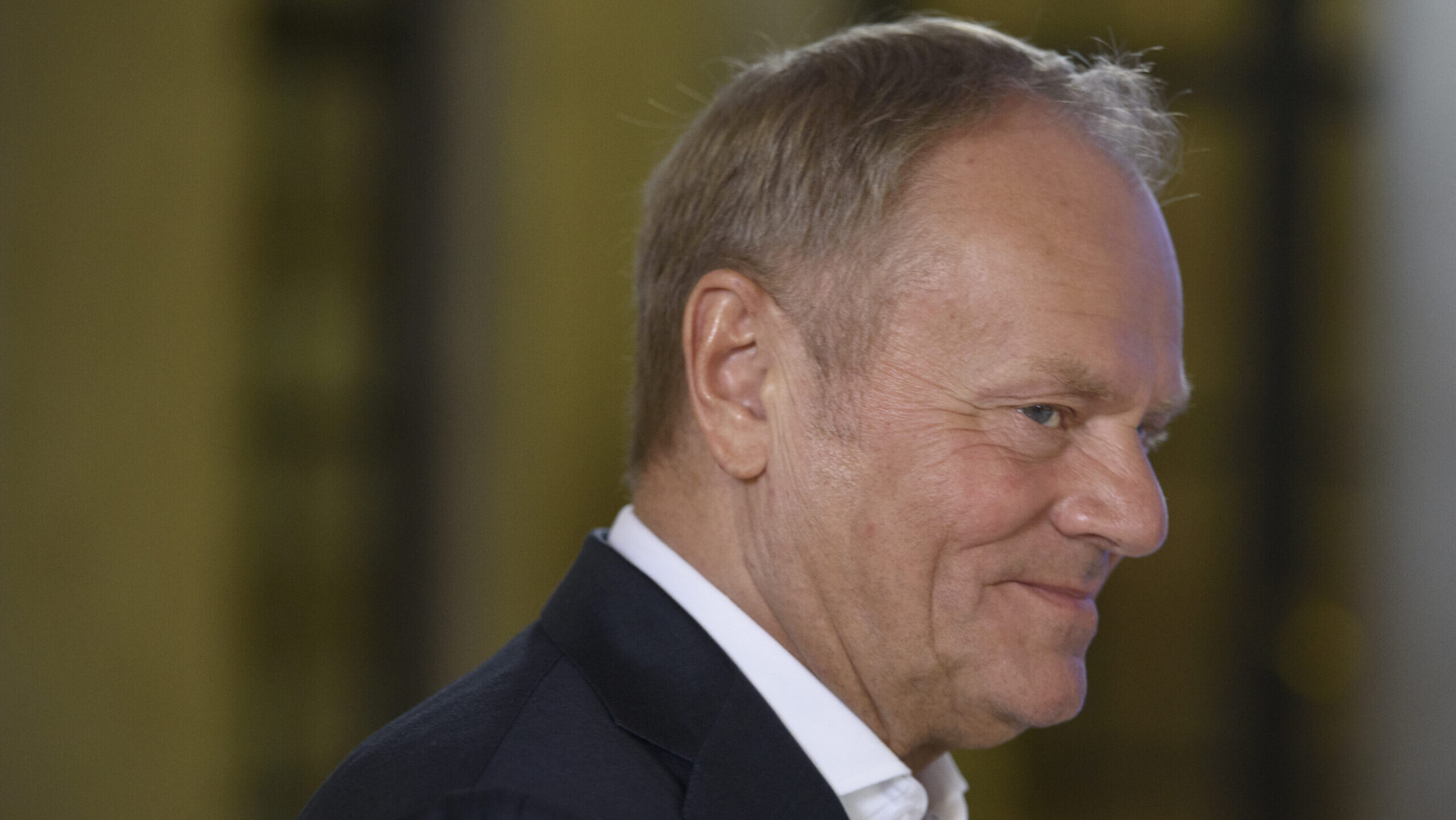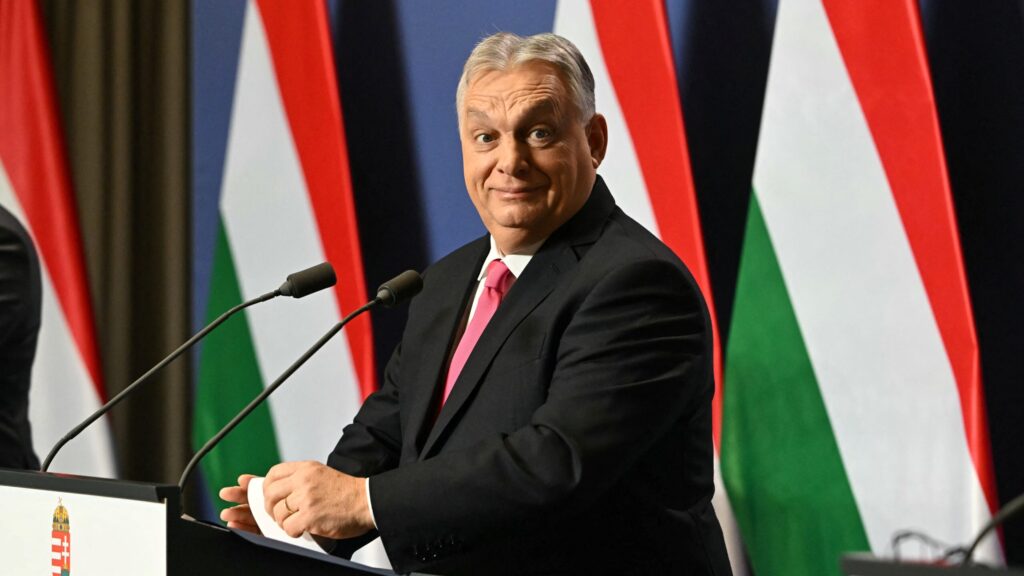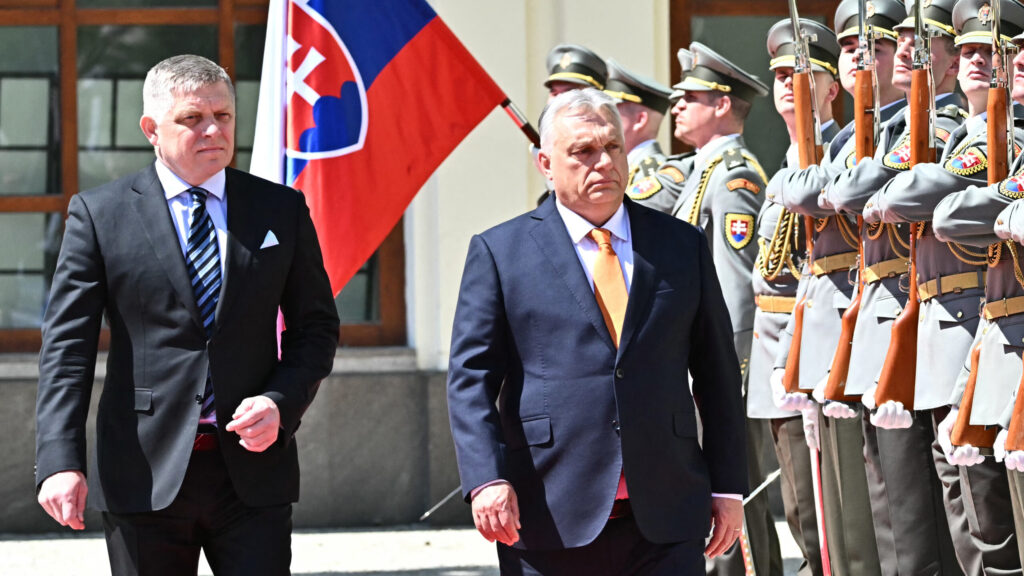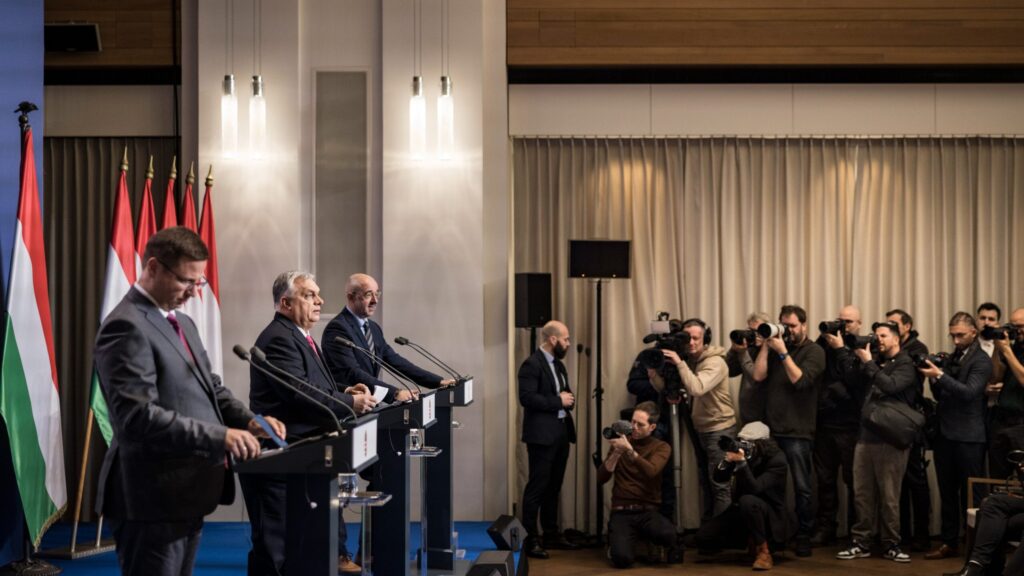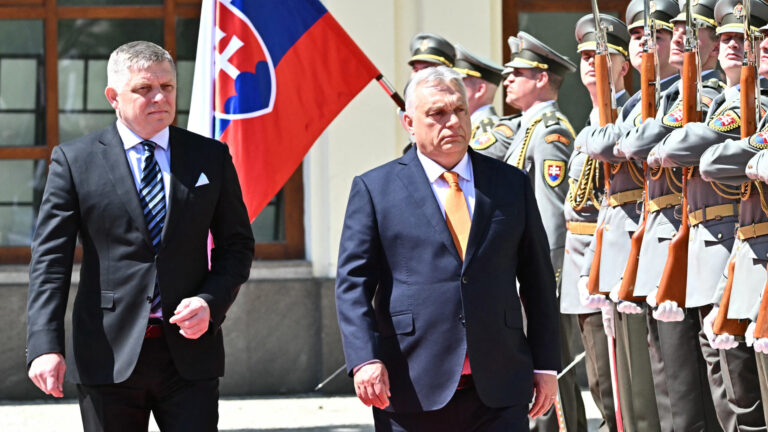The following article is unprecedented, as neither our outlet nor the author of these lines has previously engaged in this type of journalism. Yet the story it tells is likewise without precedent in many respects—most of which would be unimaginable to those of us living in the heart of Europe, in a self-proclaimed bastion of democratic values such as freedom of speech, equality before the law, and human rights. This story reveals a radically different side of Europe—and, more specifically, of the European Union.
The setting is Poland, and the story unfolds between two sides. On one side stands Donald Tusk’s government and the Polish law enforcement agencies; on the other, former employees and civil servants who served—often for decades—under various Polish cabinets, including the Law and Justice (PiS) governments between 2015 and 2023. In recent weeks, I have conducted interviews, analysed Polish media reports and official statements, and contacted relevant agencies and institutions. These efforts have led me to conclude that, serious and systematic—not necessarily in terms of frequency, but in the strikingly consistent patterns among victims—human rights violations are taking place in Poland. These abuses target almost exclusively former administrative officials who worked closely with high-ranking PiS politicians, such as former Prime Minister Mateusz Morawiecki and former Minister of Justice Zbigniew Ziobro.
These cases involve disproportionately prolonged pre-trial detention on questionable grounds, psychological torture—including the involvement of victims’ immediate families—inhumane detention conditions, and more. While these abuses are widely known in Poland, coverage of them in Western media is scarce—in fact, almost non-existent. The same holds true for the European Union’s main institutions, namely the Commission and the Parliament: though these bodies frequently present themselves as staunch defenders of democratic values and human rights, they have remained entirely silent about these serious and well-documented violations within one of their own member states.
Immadiate Retaliation
In October 2023, PiS won the parliamentary elections but fell short of forming a government, thereby allowing Donald Tusk to return to power—having previously served as prime minister from 2007 to 2014, before becoming President of the European Council. Many of those who voted for Tusk—or, more precisely, against PiS—hoped for a more pro-EU, more liberal government, particularly on issues such as reproductive rights. At the time, it was understandable why they believed that Civic Platform (PO), along with the broad coalition it led, would fulfil those hopes. However, after nearly a year in office, it is now apparent that the opposite has occurred.
After officially forming a government on 13 December, Tusk began a crackdown on his political opponents—primarily PiS, but increasingly anyone connected to the former administrations. Seizing control of public media through police intervention, restructuring the judiciary despite objections from the Polish Supreme Court, and rendering state funding inaccessible to opposition parties—each successive move by the Tusk government signalled a wholesale disregard for the rule of law, a principle he had claimed as a central priority during his campaign. While these developments were already deeply concerning, they proved to be merely the tip of the iceberg.
Multiple investigations and legal proceedings have been launched against former PiS officials, citing allegations of fund mismanagement, corruption, money laundering, and participation in a criminal organization. At the centre of these accusations lies the Ministry of Justice and the Justice Fund, originally established to provide financial support to victims and witnesses of crimes, assist former inmates in reintegrating into society, and finance crime prevention initiatives. A task force set up by current Justice Minister and former Ombudsman Adam Bodnar—a key figure in Tusk’s government—claimed that substantial portions of the fund were diverted to politically motivated projects, including unauthorized grants to ineligible organizations and the illegal procurement of spyware.
Charges have since been brought against numerous individuals, including former Deputy Justice Minister Marcin Romanowski, who is currently residing in Hungary after being granted political asylum, and now leads the recently established Hungarian–Polish Freedom Institute. Though not officially charged, former Justice Minister Zbigniew Ziobro was arrested on 31 January in what appeared to be a well-orchestrated political display intended to show the PiS official in chains. A subsequent court ruling, however, denied his detention.
This part of the story is widely known in Europe and has received considerable coverage in Western media, both progressive and conservative. Many observers describe the proceedings against former PiS officials as politically motivated and dismiss the allegations as biased. While arguments exist on both sides, it is not the purpose of this article to adjudicate them.
‘I was treated like a murderer’
However, there is another, lesser-known aspect of these investigations—one that deserves far greater attention due to the flagrant violations of human rights and human dignity it entails. Alongside the prosecutions of top PiS officials, the Tusk government launched a targeted crackdown against civil servants who worked under them. The objective: to compel them to incriminate their former superiors. Even if it required false testimony, that seemed not to matter—as is evident from the methods employed to secure such statements.
I first heard about this a few weeks ago while interviewing former Deputy Minister of Family and Social Policy Barbara Socha in Budapest. Naturally, I was shocked. But I also greeted her claims with scepticism, finding it difficult to believe that any government within the European Union could resort to such inhumane measures to take down political opponents. My doubt was further fuelled by the complete lack of Western media coverage—Hungarian outlets included.
Nevertheless, my scepticism vanished once I began digging deeper into Polish media and, thanks to Ms Socha, managed to speak directly with one of the victims of this crackdown: Urszula Dubejko. A long-serving civil servant, Mrs Dubejko held managerial posts under governments from across the political spectrum over the past two decades. She worked in several ministries, including the Prime Minister’s Office, the Ministry of the Interior, and the Ministry of Finance, before becoming Director of the Justice Fund. As she told Hungarian Conservative, she was never affiliated with any political party.
However, on 26 March 2024, Mrs Dubejko was among the first to be arrested in connection with the Justice Fund investigation. ‘At 6am, more than a dozen officers from the internal security agency forced their way into my home. Amid shouting and aggression, I was handcuffed in front of my teenage son. The entire house was searched. I was treated like a terrorist or murderer—even though I posed no threat and had never before been charged, let alone convicted,’ she recalled. Despite the gravity of her arrest, no prior summons had been issued, nor had she been questioned regarding her work at the Justice Fund.
‘Her husband lost his job due to her case, and her son was subjected to online abuse’
While the circumstances of her arrest alone raise serious legal concerns, what followed was even more disturbing—and again, inconceivable within the European Union. Mrs Dubejko described a long list of abuses: she was denied access to legal counsel; monitored by exclusively male officers during searches and while cleaning herself; forced to undress in front of them; prohibited from contacting her child; and placed in solitary confinement. ‘I did not see other detainees. I was alone everywhere and treated as a particularly dangerous prisoner,’ she said, adding that she was allowed to see her husband only once a month for a one-hour visit—separated by a thick glass wall.
In addition, Mrs Dubejko became the target of a major smear campaign in pro-government media. In her words: ‘I have already been tried and convicted, despite the absence of a trial.’ Her family also suffered during the seven months she spent in pre-trial detention: her husband lost his job due to her case, and her son was subjected to online abuse.
At the time of her arrest, Mrs Dubejko was charged with alleged procedural irregularities in the allocation of significant Justice Fund grants to the Profeto Foundation, intended to build a support centre for abuse victims. Prosecutors allege that the organization was ineligible for funding, citing a lack of relevant experience and arguing that the grants were awarded solely because the foundation’s Catholic values aligned with those of the PiS government. While this charge does not justify the violent nature of her arrest or her 213-day pre-trial detention, further charges were later added—seemingly to prolong her detention. In October 2024, she was abruptly released on bail, notably amid growing public pressure on prosecutors and the Tusk government over her unusually long incarceration.
‘I struggled with suicidal thoughts. It is still very hard for me now. There are days I wake up fearing anti-terror officers will return. I fear for my family and loved ones,’ she told Hungarian Conservative.
A Pattern of Victims
During our conversation, Mrs Dubejko stressed that her case was far from unique. On the contrary, she identified a clear pattern among those targeted. She spoke of numerous civil servants—mostly women—who endured the same inhumane treatment and psychological torture, intended to extract false testimony against former superiors. In nearly all cases, family members were used as leverage. In one instance, a woman—fearing she would lose custody of her child—incriminated her superior, a close ally of Morawiecki. In another, a former director of PiS leader Jarosław Kaczyński’s office died of a heart attack shortly after being questioned, possibly as a result of the ordeal.
One such case did attract some national media attention in early April: Anna Wójcik, who served as the director of the Prime Minister’s office under Morawiecki, was released after two months in custody. She described her arrest and detention in terms strikingly similar to those of Mrs Dubejko, including ‘terrorist-like’ treatment and psychological torture. In her case, however, prosecutors went even further: they sought to remove her parental rights. Mrs Wójcik’s son, who has autism and ADHD, suffered significant regression during her detention.
Wstrząsająca relacja Anny Wójcik. "Chodziło wyłącznie o złamanie mnie" | Gość Dzisiaj
🔔http://bit.ly/Subskrybuj_TV_Republika - subskrybuj nasz kanał i oglądaj codziennie wiadomości z Polski i ze Świata oraz wszystkie nasze programy! Jeśli podoba się Państwu video, prośba o udostępnienie go swoim znajomym oraz polubienie przez kliknięcie kciuka 👍 pod video. Dziękujemy za Państwa wsparcie.
Father Michał Olszewski, head of the Profeto Foundation, who was arrested the same day as Mrs Dubejko, also reported similar abuse. In connection with his case, Obserwator Praworządności noted: ‘The actions carried out against Rev. Michał Olszewski by Adam Bodnar’s prosecutors and by law enforcement officers subordinate to both Minister of Justice Adam Bodnar and Minister of the Interior and Administration Marcin Kierwiński…violated a number of guarantees set forth in applicable law,’ citing the Polish Constitution, the Code of Criminal Procedure, the EU Charter of Fundamental Rights, the European Convention on Human Rights, the International Covenant on Civil and Political Rights, and the Convention against Torture. ‘Regardless of what will eventually appear in the indictment, the abuses carried out against Father Olszewski and his lawyer clearly indicate that the aim was not to obtain reliable testimony but to exert psychological pressure on anyone involved with the Justice Fund up to 2023,’ the article concluded.
Hungarian Conservative sent a press enquiry to the Polish Ministry of Justice regarding the controversies surrounding these cases. However, after more than a month, we received no response.
EU’s Complicit Silence
While cases like Mrs Dubejko’s have been ongoing since at least March 2024, the European Commission released billions of euros in previously frozen EU funds to Poland. The announcement was made by Commission President Ursula von der Leyen in February 2024 and marked the first instalment of the €137 billion in recovery and cohesion funds. Subsequently, Brussels also decided to terminate the Article 7 procedure against Warsaw. Ironically, all of these sanctions had originally been imposed on Poland over alleged deterioration of the rule of law. ‘We consider there is no longer a clear risk of a serious breach of the rule of law in Poland,’ then–Commissioner for Values and Transparency Věra Jourová told reporters in May 2024—two months after the arrest of Mrs Dubejko and other civil servants, who were at the time likely still sitting in solitary confinement, grappling with suicidal thoughts as a result of the psychological abuse they were subjected to in custody.
At this point, it is impossible to ignore the fact that Hungary is now the only EU member state still facing the rule of law conditionality mechanism and the Article 7 procedure. In April 2025, a delegation of the European Parliament’s Committee on Civil Liberties, Justice and Home Affairs (LIBE) visited Hungary, with the declared goal to examine the state of the rule of law in the country. Tineke Strik, the Dutch MEP and current rapporteur on Hungary, claimed that Hungary’s democratic and legal standards had ‘significantly deteriorated’ since LIBE’s previous visit in 2021. She labelled Hungarian Prime Minister Viktor Orbán as ‘corrupt’, ‘disloyal’, and ‘an unscrupulous violator of the EU’s most fundamental values’. Meanwhile, von der Leyen described Donald Tusk as a ‘reformer’, ‘committed to European values’, and a ‘forger of a stronger Europe’.
Since her release in October 2024, Mrs Dubejko has not ceased in her efforts to seek justice. According to her, the Polish Ombudsman has confirmed several violations committed during her detention. In response to our enquiry, the Ombudsman’s office stated: ‘Regarding the violation of the right of defence, the Ombudsman has sent a formal letter to the National Public Prosecutor, who, however, did not agree with the assessment that the prosecutor’s failure to allow the suspect’s chosen lawyer to attend her first interrogation constituted a breach of her rights.’ It is worth noting that the National Public Prosecutor, Dariusz Korneluk, was appointed by Tusk, and his legitimacy is disputed—President Andrzej Duda never issued the constitutionally required opinion on his appointment.
‘My feeling is that in the current EU, human rights are reserved for a select few’
The Ombudsman’s report also revealed that both the Ministry of the Interior and Administration and the Polish police acknowledged multiple violations. ‘The Ministry of the Interior and Administration recognises the need for legislative change. The rights of detained persons during procedural activities must be revised, which is why the Ministry of Justice should take the lead,’ wrote Czesław Mroczek, Secretary of State in the Ministry of the Interior. The Ministry of Justice, however, is currently the main force driving Tusk’s campaign against PiS and its former civil servants.
Mrs Dubejko’s legal team has also brought her case before the European Court of Human Rights (ECHR), where proceedings are pending. That being said, the notion that EU leaders are entirely unaware of these events is implausible in the extreme. This raises the rather poetic question: why have they remained completely silent? Why was the Article 7 procedure not reinstated against Warsaw, despite clear legal grounds to do so?
‘My feeling is that in the current EU, human rights are reserved for a select few,’ Mrs Dubejko told us when asked how she perceived Brussels’ silence in such a vulnerable and hopeless situation. Hungarian Conservative gave the Commission an opportunity to make amends for its inaction. It did not take it.
Responding to our enquiry, a Commission spokesperson cited the official justification for closing the Article 7 procedure. ‘The decision to close the Article 7 procedure followed a thorough analysis. The conclusion was that “a clear risk of a serious breach” no longer exists,’ the response read. It added: ‘The Commission continues to monitor relevant developments regarding the rule of law in all Member States, including Poland, through the annual Rule of Law Report process.’
Clinging to Hope
However, Polish society does not tolerate oppression for long. It is no coincidence that, when the winds of change began to blow across communist-ruled Eastern Europe, Poland was home to the most extensive and resilient pro-democracy grassroots movement. Though formally a trade union, Solidarity led the process of regime change in the early 1990s. Once news of the persecution of civil servants spread, Poles took to the streets. Several mass demonstrations were held, broadly protesting Tusk’s abuse of power, and were attended by tens of thousands of people. According to Mrs Dubejko, these protests played a key role in securing her release. ‘I think it was public pressure that got me released from detention. The protests significantly exceeded my imagination—there were a lot of them. People came to the prison where I was held and to the prosecutor’s office and protested there,’ she recalled. Unsurprisingly, such protests have received little to no coverage in the Western mainstream media.
A shift in public sentiment is already evident: according to a survey published by Rzeczpospolita, nearly 35 per cent of respondents believed that the state of the rule of law in Poland had ‘significantly worsened’ since Tusk took power—by far the most popular response.
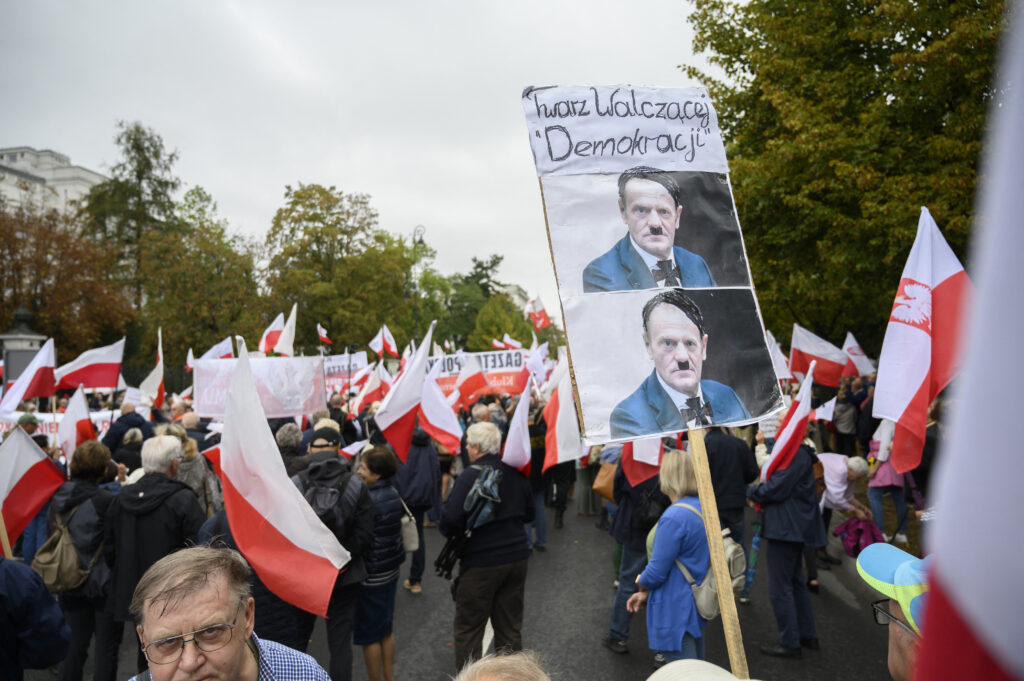
Poland is set to hold presidential elections in May 2025. While the media has grown fond of branding nearly every election as ‘historic’ or ‘decisive’, this one genuinely is. The stakes are high: PiS-affiliated President Andrzej Duda is currently the last significant institutional counterweight to Tusk’s concentration of power—the only figure capable of shielding civil servants, or anyone else, from further political retribution. Should the presidency fall into Tusk’s hands, the consequences for his opponents could be dire. ‘That would be a total disaster. We would be left without any institution capable of holding the ruling party to account,’ Ms Socha told me during our interview in early April. The mere thought of such an outcome left her visibly distraught.
Yet this scenario is far from implausible. Tusk’s candidate, Warsaw Mayor Rafał Trzaskowski, is currently leading the polls, garnering around 30 per cent of support. PiS-backed historian Karol Nawrocki trails in second place, with a gap of roughly 3 to 5 percentage points. Sławomir Mentzen of the right-wing Konfederacja party is in third, polling at approximately 15 to 20 per cent. Although the numbers favour Trzaskowski, an upset victory by a conservative candidate is not unimaginable—after all, in 2015, Duda managed to overturn a 15-point deficit just two weeks before the election.
So while the outlook may seem bleak, it is not without hope. And for those currently enduring political persecution at the hands of the Tusk administration—ignored by the European Union and Western mainstream media alike—hope may be all that remains. ‘It’s hard to believe, I know,’ Ms Socha said as we concluded our discussion. ‘But this is exactly what is happening. It’s not good news, I know. Hopefully, next time we speak, it will be under better circumstances—at least for Poland.’
Related articles:

